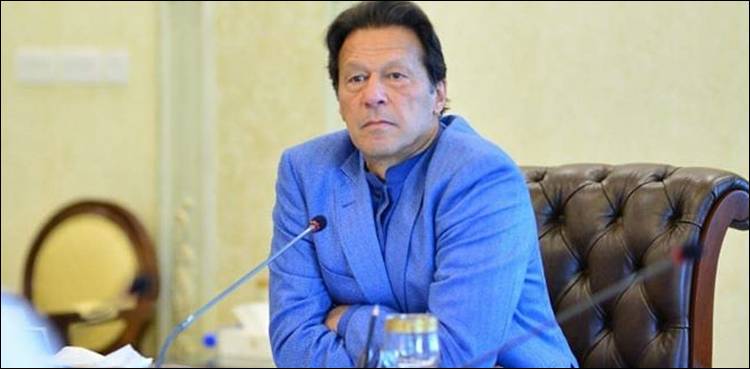
Plutocracy runs deep in veins of the 22nd Prime Minister of Pakistan. Imran Khan was born into a prosperous Pashtun family in Mianwali, Punjab. Major Geoffrey Douglas Langlands was his teacher in class VIII. Though his outstanding cricketing talent was visible to everyone, Imran didn’t pay much attention to class work. He was at the bottom in class and failed ninth grade, forcing his father to take him away to Worcester Grammar School – where, too, he failed and came back to a missionary institution of Lahore.
He received an elite education both in Pakistan and the United Kingdom, attending Aitchison College in Lahore from 1960 to 1969. Imran Khan played cricket in Pakistan and the United Kingdom in his teens. There were several accomplished cricket players in his family, including two elder cousins, Javed Burki and Majid Khan, who both served as captains of the Pakistani national team.
He continued playing while attending his Philosophy, Politics and Economics degree at the University of Oxford in 1972. This is when he saw Dennis Lillee bowl fast enough to inspire him and that’s when he decided to be a fast bowler. Imran Khan played his first match for Pakistan’s national team in 1971, but he did not take a permanent place on the team until after his graduation from Oxford in 1976. He was also the captain of the Oxford University cricket team in 1974.
Imran Khan had announced his retirement from international cricket after the conclusion of the 1987 World Cup. However, then President of Pakistan Gen Zia-ul-Haq asked him to return to lead the team. Imran accepted his offer and went on to lead the team to their first ever cricketing World Cup Victory in 1992.
Imran Khan is one of the six Pakistani politicians who went to Oxford. He joins the ranks of Liaquat Ali Khan, Zulfiqar Ali Bhutto, Shaheed Benazir Bhutto, Wasim Sajjad and Bilawal Bhutto Zardari.
On a side note, Imran Khan broke his left hand in school when he fell off a tree. The injury caused him pain but was never a hindrance in his career since he didn’t use the left hand to bowl. However, he faced issues in batting and had to practice rigorously to overcome the pain.
Imran khan used to feel sorry for the Indian team during his sporting days as Pakistan beat them quite often. He often said Pakistan regarded West Indies and not India as their rivals when he was the captain.
Though we still recall him as a great cricketer, his antics as the Prime Minister of Pakistan will leave a harsh mark on our collective memory. His government’s performance during the past 20 months, unfortunately, seems to have let down many of his staunch supporters in the media and his voters, particularly among the middle class and the youth.
It is not yet clear how he will emerge from this political and policy quagmire.
He received an elite education both in Pakistan and the United Kingdom, attending Aitchison College in Lahore from 1960 to 1969. Imran Khan played cricket in Pakistan and the United Kingdom in his teens. There were several accomplished cricket players in his family, including two elder cousins, Javed Burki and Majid Khan, who both served as captains of the Pakistani national team.
He continued playing while attending his Philosophy, Politics and Economics degree at the University of Oxford in 1972. This is when he saw Dennis Lillee bowl fast enough to inspire him and that’s when he decided to be a fast bowler. Imran Khan played his first match for Pakistan’s national team in 1971, but he did not take a permanent place on the team until after his graduation from Oxford in 1976. He was also the captain of the Oxford University cricket team in 1974.
Imran Khan had announced his retirement from international cricket after the conclusion of the 1987 World Cup. However, then President of Pakistan Gen Zia-ul-Haq asked him to return to lead the team. Imran accepted his offer and went on to lead the team to their first ever cricketing World Cup Victory in 1992.
Imran Khan is one of the six Pakistani politicians who went to Oxford. He joins the ranks of Liaquat Ali Khan, Zulfiqar Ali Bhutto, Shaheed Benazir Bhutto, Wasim Sajjad and Bilawal Bhutto Zardari.
On a side note, Imran Khan broke his left hand in school when he fell off a tree. The injury caused him pain but was never a hindrance in his career since he didn’t use the left hand to bowl. However, he faced issues in batting and had to practice rigorously to overcome the pain.
Imran khan used to feel sorry for the Indian team during his sporting days as Pakistan beat them quite often. He often said Pakistan regarded West Indies and not India as their rivals when he was the captain.
Though we still recall him as a great cricketer, his antics as the Prime Minister of Pakistan will leave a harsh mark on our collective memory. His government’s performance during the past 20 months, unfortunately, seems to have let down many of his staunch supporters in the media and his voters, particularly among the middle class and the youth.
It is not yet clear how he will emerge from this political and policy quagmire.
